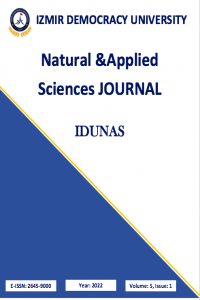Academic Entrepreneurship and Technical Considerations for the Commercialization of Biomaterial-Based Medical Devices
Abstract
Academic entrepreneurship, which refers to the university-based initiatives to encourage commercialization on campus and in the surrounding community, has evolved considerably in the recent years. Increasing number of stakeholders have been interested in academic entrepreneurship, and institutions have established higher number of strategies to encourage this development. Universities are organizations that play an important role in modern society by teaching, as well as research and development activities to produce scientific knowledge. Many institutions have recently taken important steps to create a "third purpose", by fostering connections within knowledge and users through promoting technology transfer, sometimes at the request of policymakers. Commercialization of knowledge produced in the academia, which includes patenting and licensing of findings, together with academic entrepreneurship, has gained a lot of attention from both academics and policymakers among the multiple pathways available for forging these linkages. Because it represents direct, demonstrable market acceptance for academic research results, commercialization is seen as a rising model for achieving academic influence. Many institutions have built specialized organizations, such as technology transfer offices (TTOs), scientific parks (Technopolis), and incubators, to aid commercialization as well as supporting internal policies and processes. The linkage between the universities and the industry have massively strengthened through academic entrepreneurship. There has been a significant impact on the regional and economic development due to the technological patents and spinoff companies emerged as a result of the research activities in universities. In this comprehensive review, the recent patent applications in the field of biomaterials in Turkey, Europe, and the United States of America were also covered, highlighting the number of patent applications of different biomaterial subgroups.
References
- 1. Pattnaik, P. N., Pandey, S. C. (2014). Technology Innovation Management Review, 4(12): 44–50. http://timreview.ca/article/857
- 2. Seth, S. (2021). Why is entrepreneurship important to the economy? Investopedia. https://www.investopedia.com/articles/personal-finance/101414/why-entrepreneurs-are-important-economy.asp
- 3. Wood, M. (2011). A process model of academic entrepreneurship. Business Horizons, 54(2), 153-161.
- 4. Meyer, M. (2003). Academic entrepreneurs or Entrepreneurial Academics? Research–based ventures and public support mechanisms. R&D Management, 33(2), 107-115.
- 5. Siegel, D. S., Wright, M. (2015). Academic entrepreneurship: Time for a rethink? British Journal of Management, 26(4), 582-595.
- 6. Marcolongo, M. (2017). Academic entrepreneurship: How to bring your scientific discovery to a successful commercial product., Wiley, ISBN: 978-1-118-85908-7.
- 7. Wilbur, T. (2019). IP explained: Four things to know about the Bayh-Dole Act. https://catalyst.phrma.org/ip-explained-four-things-to-know-about-the-bayh-dole-act
- 8. Ferguson, C., (2017). 40 years on: The Bayh-Dole act and University Innovation. https://otc.duke.edu/news/39-years-later-bayh-dole-act
- 9. Astebro, T., Braunerhjelm, P., Broström, A. (2013). Does academic entrepreneurship pay? Industrial and Corporate Change, 22(1), 281–311.
- 10. Rosen, Y., Elman, N., (2012). Biomaterials Science: An Integrated Clinical and Engineering Approach, CRC Press, ISBN-13: 978-0367381257
- 11. Scarborough, N., Mukherjee, N. (2015). Technical considerations for commercialization of biomaterials, Editor(s): Stephen F. Amato, Robert M. Ezzell, In Woodhead Publishing Series in Biomaterials, Regulatory Affairs for Biomaterials and Medical Devices, Woodhead Publishing, 11-26, ISBN 9780857095428.
- 12. Ige, O., O., Umoru, L., E., Aribo, S. (2012). Natural Products: A Minefield of Biomaterials. International Scholarly Research Notices, 983062.
- 13. Kulinets, I. (2015). Biomaterials and their applications in medicine. Regulatory Affairs for Biomaterials and Medical Devices, 1–10. https://doi.org/10.1533/9780857099204.1
- 14. Bao Ha, T. L., Minh, T., Nguyen, D., Minh, D. (2013). Naturally Derived Biomaterials: Preparation and Application. Regenerative Medicine and Tissue Engineering. https://doi.org/10.5772/55668
- 15. Patent process overview. (uspto). (2021). https://www.uspto.gov/patents/basics/patent-process-overview#step8
- 16. How to apply for a European patent. (European Patent Office). (2018). https://www.epo.org/applying/basics.html
- 17. USPTO patent full-text and image database. (uspto). https://patft.uspto.gov/netahtml/PTO/search-adv.htm
- 18. Espacenet patent search. (European Patent Office). (2021). https://www.epo.org/searching-for-patents/technical/espacenet.html
- 19. Pugach, A. (2020). Bone Implant (EP3730096). European patent application, PCT/RU2018/050165.
Abstract
References
- 1. Pattnaik, P. N., Pandey, S. C. (2014). Technology Innovation Management Review, 4(12): 44–50. http://timreview.ca/article/857
- 2. Seth, S. (2021). Why is entrepreneurship important to the economy? Investopedia. https://www.investopedia.com/articles/personal-finance/101414/why-entrepreneurs-are-important-economy.asp
- 3. Wood, M. (2011). A process model of academic entrepreneurship. Business Horizons, 54(2), 153-161.
- 4. Meyer, M. (2003). Academic entrepreneurs or Entrepreneurial Academics? Research–based ventures and public support mechanisms. R&D Management, 33(2), 107-115.
- 5. Siegel, D. S., Wright, M. (2015). Academic entrepreneurship: Time for a rethink? British Journal of Management, 26(4), 582-595.
- 6. Marcolongo, M. (2017). Academic entrepreneurship: How to bring your scientific discovery to a successful commercial product., Wiley, ISBN: 978-1-118-85908-7.
- 7. Wilbur, T. (2019). IP explained: Four things to know about the Bayh-Dole Act. https://catalyst.phrma.org/ip-explained-four-things-to-know-about-the-bayh-dole-act
- 8. Ferguson, C., (2017). 40 years on: The Bayh-Dole act and University Innovation. https://otc.duke.edu/news/39-years-later-bayh-dole-act
- 9. Astebro, T., Braunerhjelm, P., Broström, A. (2013). Does academic entrepreneurship pay? Industrial and Corporate Change, 22(1), 281–311.
- 10. Rosen, Y., Elman, N., (2012). Biomaterials Science: An Integrated Clinical and Engineering Approach, CRC Press, ISBN-13: 978-0367381257
- 11. Scarborough, N., Mukherjee, N. (2015). Technical considerations for commercialization of biomaterials, Editor(s): Stephen F. Amato, Robert M. Ezzell, In Woodhead Publishing Series in Biomaterials, Regulatory Affairs for Biomaterials and Medical Devices, Woodhead Publishing, 11-26, ISBN 9780857095428.
- 12. Ige, O., O., Umoru, L., E., Aribo, S. (2012). Natural Products: A Minefield of Biomaterials. International Scholarly Research Notices, 983062.
- 13. Kulinets, I. (2015). Biomaterials and their applications in medicine. Regulatory Affairs for Biomaterials and Medical Devices, 1–10. https://doi.org/10.1533/9780857099204.1
- 14. Bao Ha, T. L., Minh, T., Nguyen, D., Minh, D. (2013). Naturally Derived Biomaterials: Preparation and Application. Regenerative Medicine and Tissue Engineering. https://doi.org/10.5772/55668
- 15. Patent process overview. (uspto). (2021). https://www.uspto.gov/patents/basics/patent-process-overview#step8
- 16. How to apply for a European patent. (European Patent Office). (2018). https://www.epo.org/applying/basics.html
- 17. USPTO patent full-text and image database. (uspto). https://patft.uspto.gov/netahtml/PTO/search-adv.htm
- 18. Espacenet patent search. (European Patent Office). (2021). https://www.epo.org/searching-for-patents/technical/espacenet.html
- 19. Pugach, A. (2020). Bone Implant (EP3730096). European patent application, PCT/RU2018/050165.
Details
| Primary Language | English |
|---|---|
| Journal Section | Review |
| Authors | |
| Publication Date | June 30, 2022 |
| Acceptance Date | June 22, 2022 |
| Published in Issue | Year 2022 Volume: 5 Issue: 1 |

